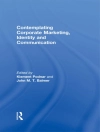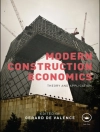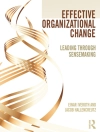European union movements played a central role in promoting a ‘Europeanmodel of society’, a humane industrial relations system, high labor standards, generous welfare states, and collective political representation which reached its pinnacle in the post-World War II era. The recent shift to lower growth, rising unemployment, renewed European integration, neo-liberalism, and globalization has challenged this ‘European Model’ and the unions’ place in it. These essays, written by some of the leading scholars in the field, examine responses of six major European union movements to the dramatic changes in economic and political conditions in the last two decades. They are the result of a group research effort and are based on a common framework which lends it quite an exceptional coherence.
विषयसूची
Chapter 1. European Unions Face the Millennium
George Ross and Andrew Martin
Chapter 2. Unforgiven: British Trade Unionism in Crisis
Chris Howell Chapter 3. Every Which Way But Loose: German Industrial Relations Since 1980
Stephen J. Silvia
Chapter 4. ‘Yesterday’s Modern Times Are No Longer Modern’ : Swedish Unions Confront the Double Shift
Rianne Mahon
Chapter 5. The Hollowing of French Unions: Politics and Industrial Relations After 1981
Anthony Daley
Chapter 6. The Resurgence of Italian Unions?
Richard M. Locke and Lucio Baccaro
Chapter 7. Tightrope: Spanish Unions and Labor Market Segmentation
Lydia Fraile
Chapter 8. In the Line of Fire: The Europeanization of Labor Representation
Andrew Martin and George Ross
Chapter 9. Conclusion: Through a Glass Darkly
George Ross and Andrew Martin
लेखक के बारे में
Andrew Martin is Research Affiliate of the Harvard Center for European Studies. His research has focused on labor movements in Western Europe and North America.












